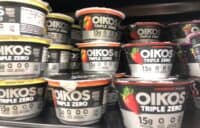
Whether you like to cook fancy dinners or prefer takeaway, you are going to have to store food at some point.
The general perception is that if you refrigerate food, it will last longer because the cold temperature slows bacterial growth. While keeping food cool is indeed better in most cases, it sometimes make it taste worse and decay faster due to moisture absorption.
You probably keep some foods refrigerated when they shouldn’t be and vice versa. As a result, much of your produce gets thrown out. In fact, Americans waste about 150,000 tons of food a day, with fruits and vegetables being the most frequently tossed items, followed by dairy and meat, according to a study by the U.S. Department of Agriculture (USDA).
Uneaten food is by far the biggest single source of trash in municipal landfills. About 40% of the food produced in the country is wasted every year, consequently wasting all of the resources used to make the food, including fresh water and millions of acres of farmland. (These are 9 vegetables you should never eat raw.)
The best way to prevent food waste and the related environmental costs is to stop throwing it out in the first place. But to do so, people need to know how to keep food safe and fresh for longer.
To create the list of foods that should and should not be kept refrigerated, 24/7 Tempo reviewed dozens of reports and guidelines from the U.S. Department of Agriculture and its affiliates on food safety and selected the products that are commonly found in people’s kitchens.
Click here to read about foods that should and should not be kept in the fridge
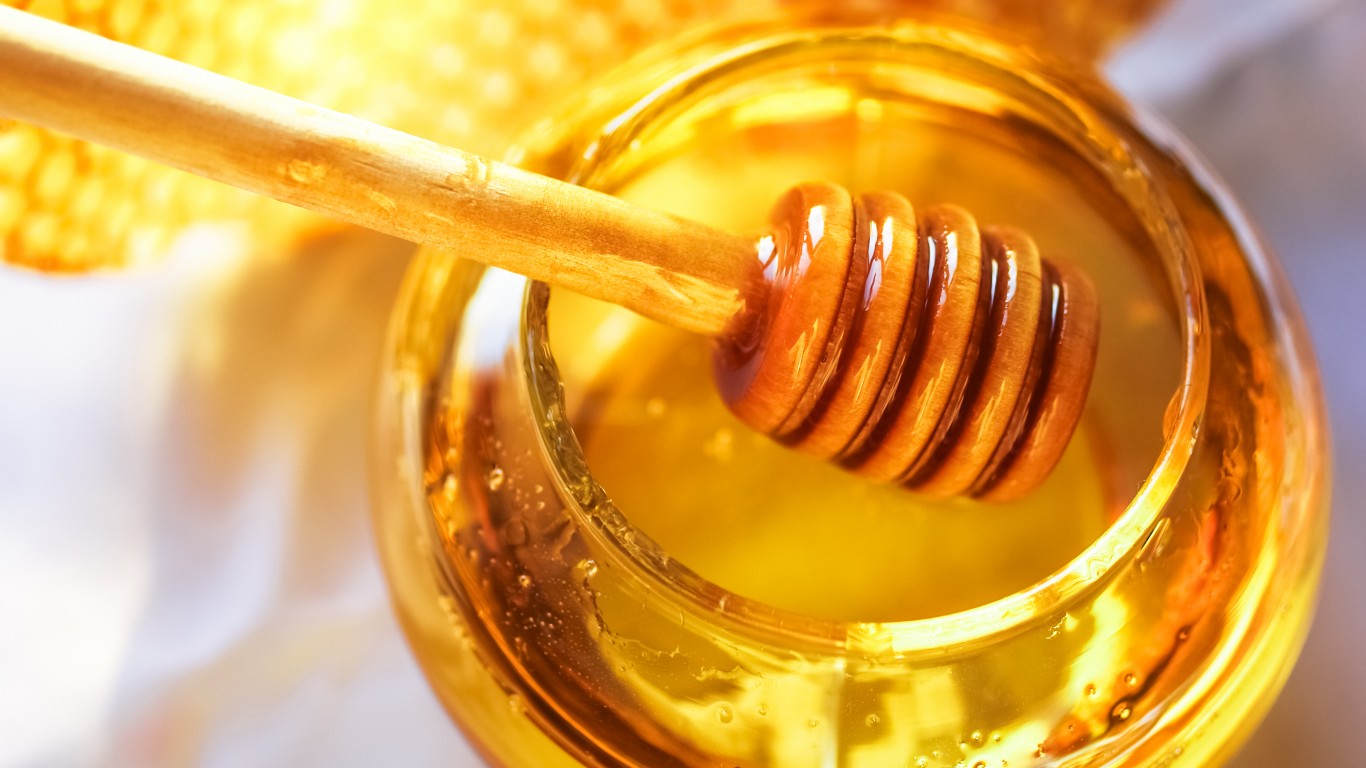
Honey
If honey is stored in a sealed container it can remain stable for several years. But to be on the safe side, manufacturers recommend no more than two years, as it can chemically change and lose its aroma depending on the temperature. Honey should be stored in a cool and dark place where the temperature is not higher than 45 degrees Fahrenheit in order to avoid moisture absorption, which can lead to fermentation and a decrease in quality.
[in-text-ad]
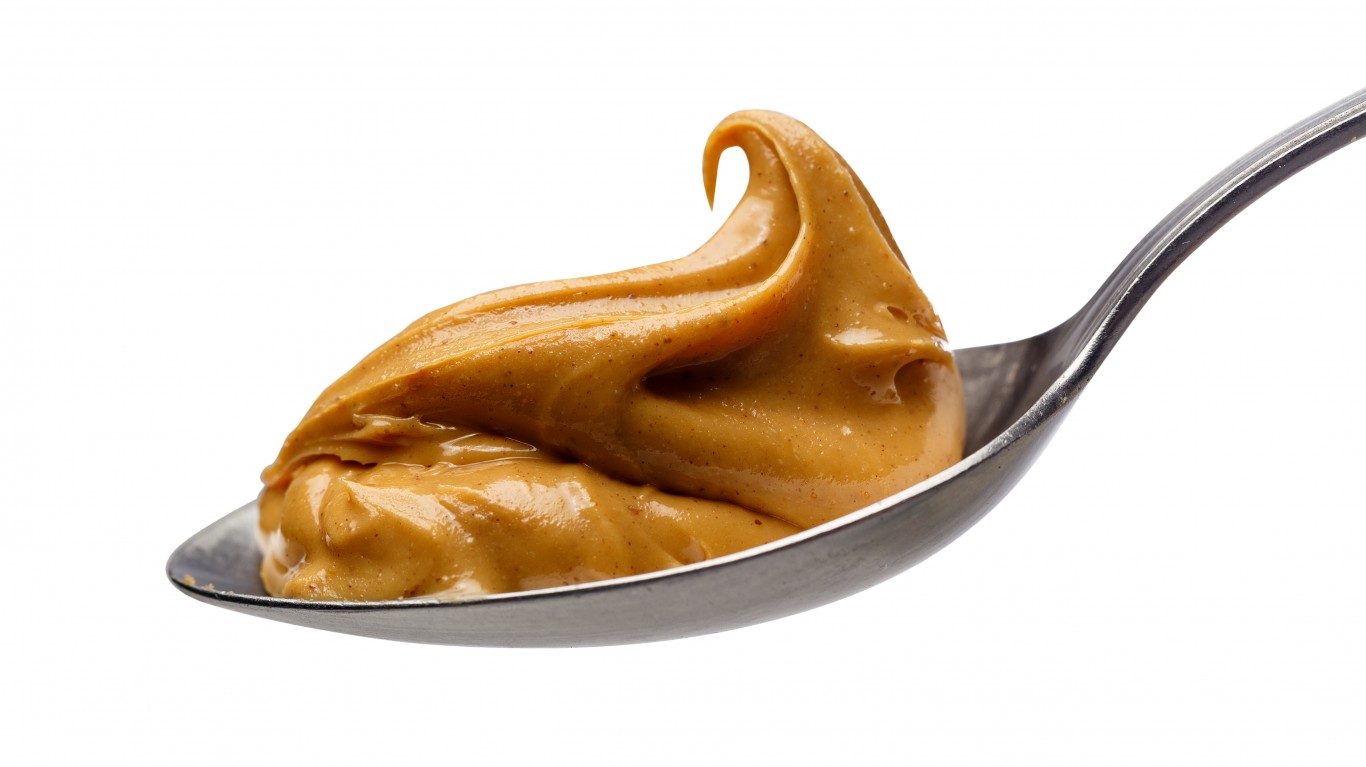
Peanut butter
Peanut butter products should be kept in a dry and cool place, away from strong light and heat (and even appliances, as some can produce heat). An unopened jar of peanut butter does not have to be refrigerated. However, once you open it, keeping it in the fridge will ensure it stays fresh for up to nine months. Otherwise, its shelf life will be no more than three months.

Coffee beans
Coffee beans must be kept away from air, moisture, heat and light. The National Coffee Association recommends that they be stored in a dark, airtight container at room temperature to preserve their fresh roasted flavor. Cabinets near the oven and kitchen counters are not recommended.
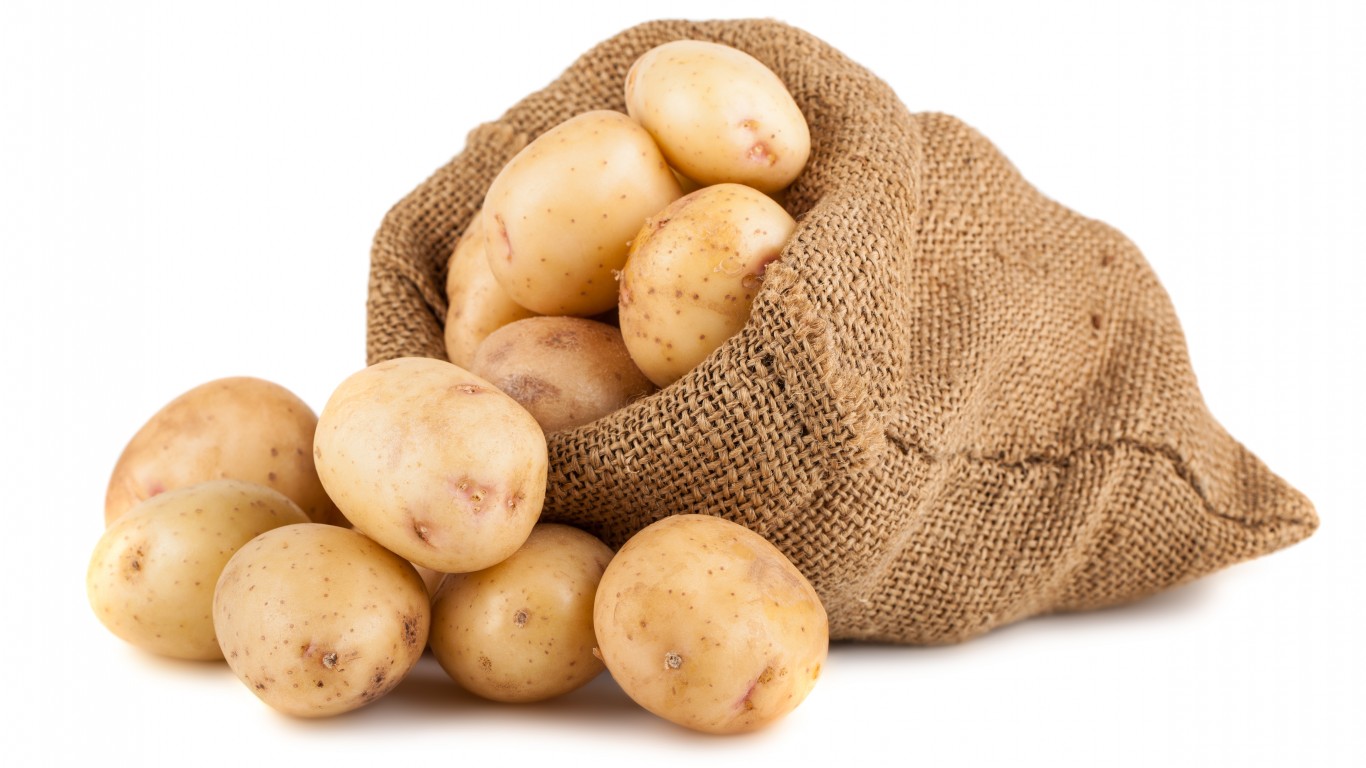
Potatoes
Potatoes can stay fresh for several months if stored properly, which means not washing them before storing because dampness increases the likelihood of decay. Keep them in a cool – 45 to 50 degrees Fahrenheit – dark place, with good ventilation. Higher temperatures often lead to sprouting.
[in-text-ad-2]
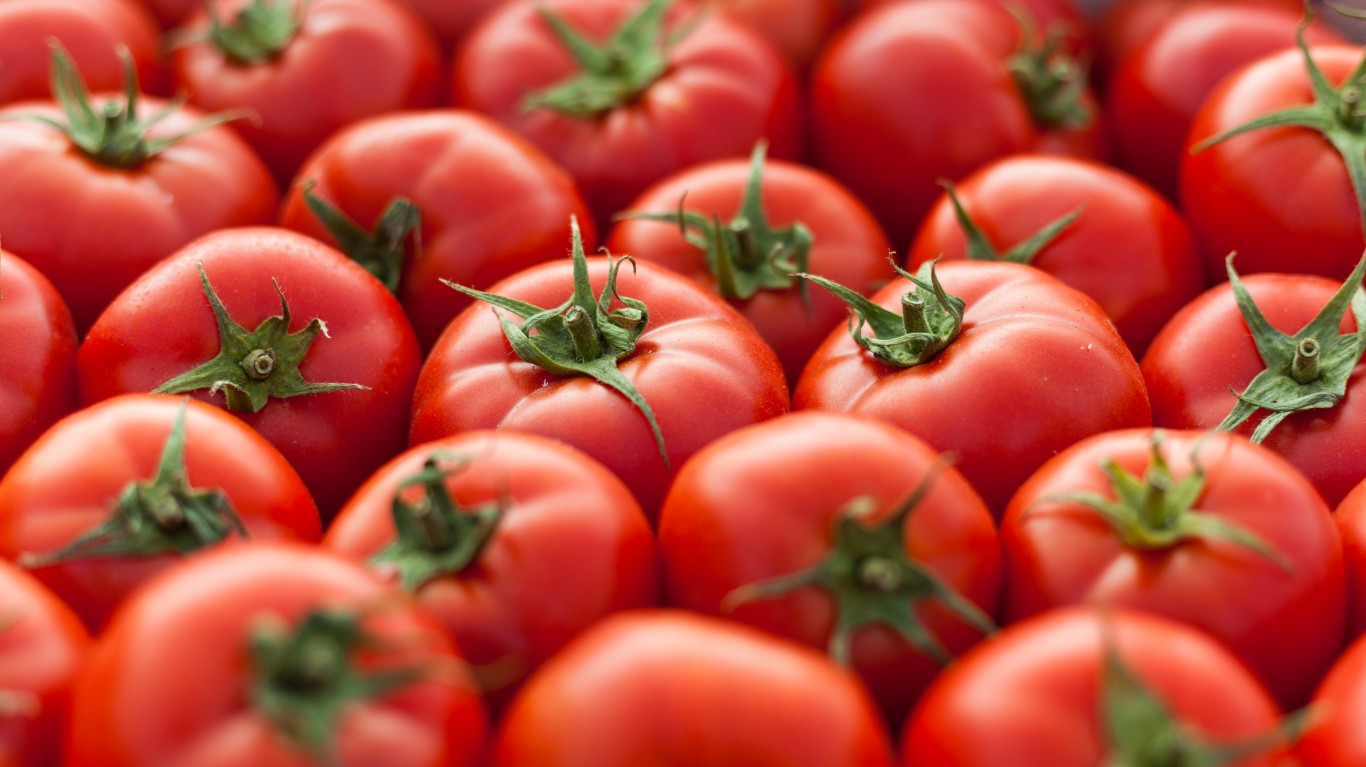
Tomatoes
A quarter of tomatoes consumed in the United States, the largest tomato producer in the world, are eaten raw. They should be stored in a cool, dry place – not in a plastic bag – and away from other produce and meats to prevent cross-contamination. Store them in a single layer to prevent them from becoming mushy. You can freeze tomatoes for up to eight months.
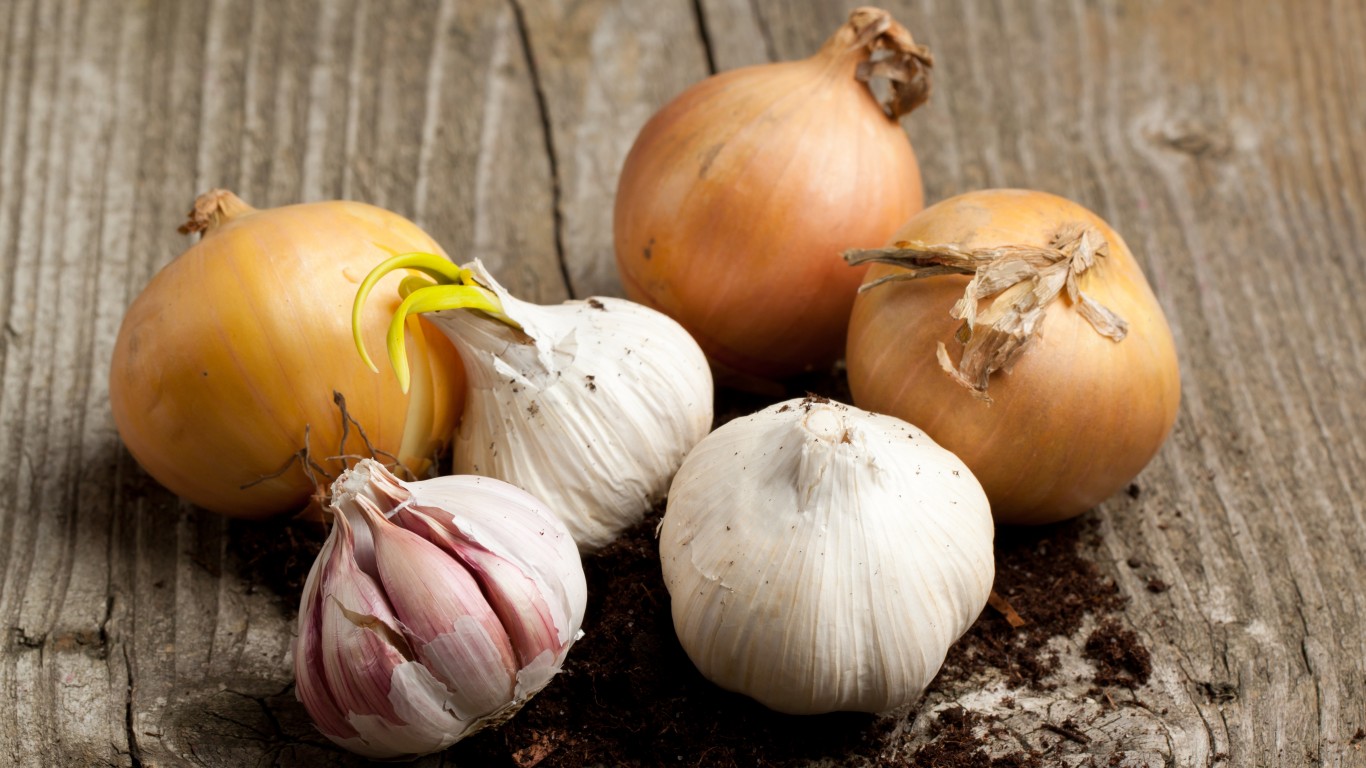
Onions and garlic
Whole onions should be kept for up to four weeks in a cool place (though not in the fridge), away from light, and in a well-ventilated container such as a mesh bag. Sweet onions have a shorter shelf life. Once cut, onions should be kept in the fridge and used within a few days. Garlic should not be kept in the fridge as the cold temperature will stimulate sprouting. Keeping garlic in a cool, dark and dry place will ensure its freshness for up to five months.
[in-text-ad]
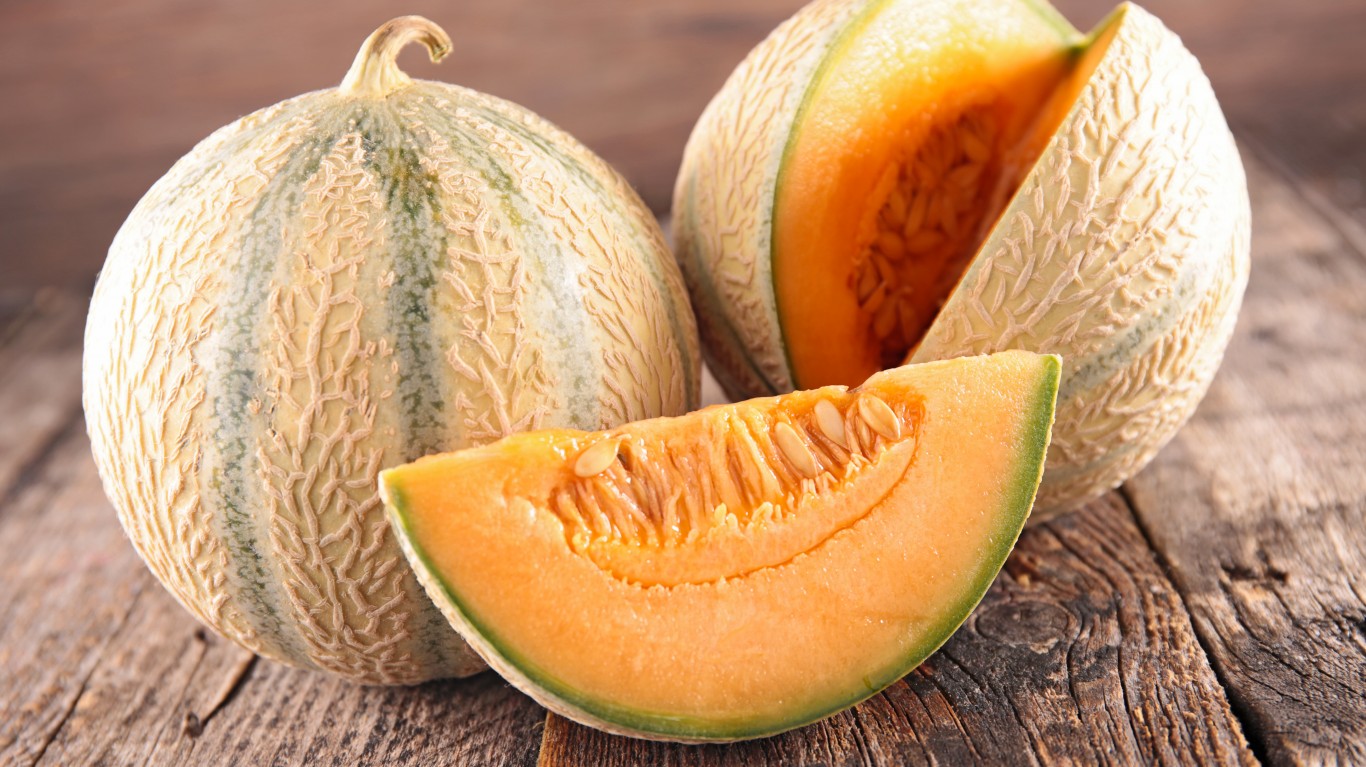
Melon
Melons, a popular fresh addition to salads and desserts, include cantaloupe, honeydew, and watermelon. The best way to store ripe cantaloupe is 36 to 41 degrees Fahrenheit with optimal humidity between 95% and 100%, which will prevent it from drying out. It lasts in the fridge five to 15 days. Honeydew melons should be stored at room temperature, and in the fridge for up to two weeks once they are cut. Whole watermelons should also be stored at room temperature and in airtight containers in the fridge once cut.
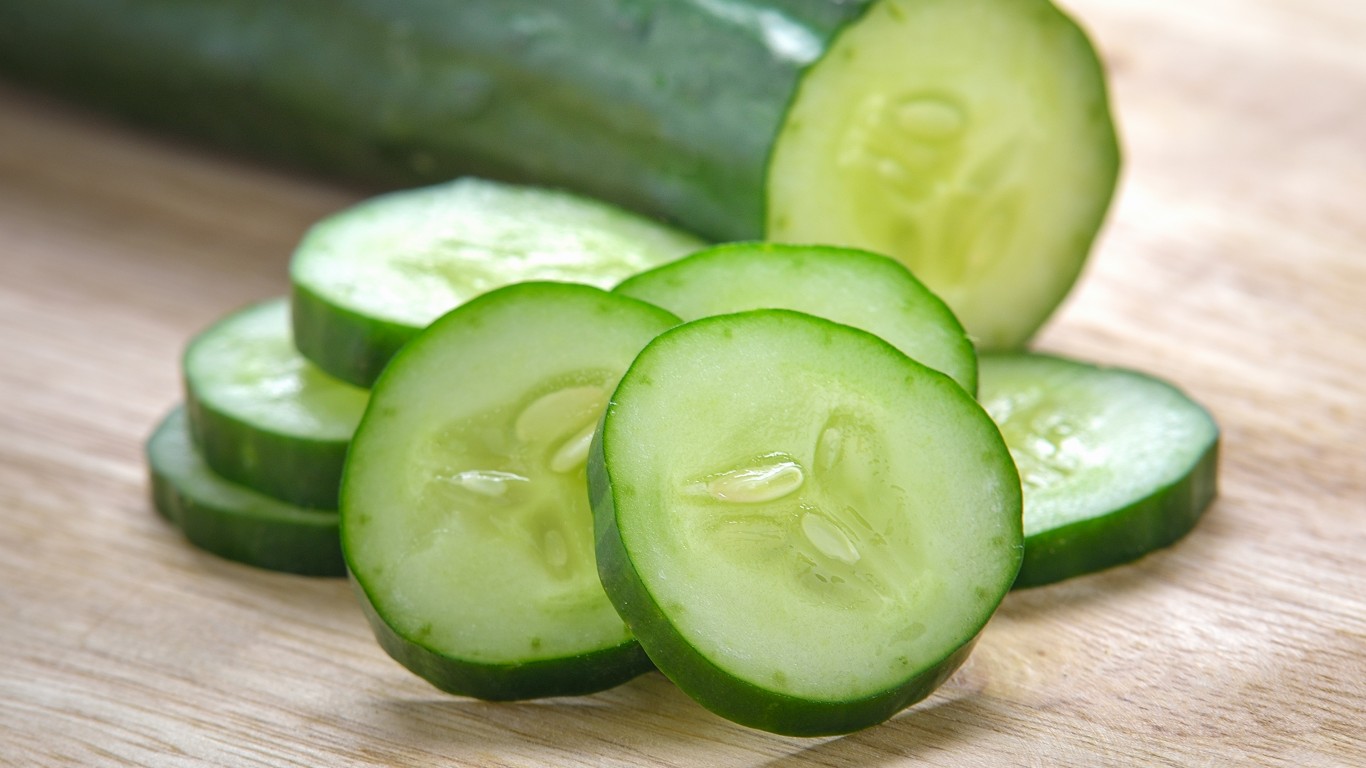
Cucumbers
Cucumbers, which are 96% water, should be stored in the fridge for no more than a week. The most nutritious part of the vegetable is the skin, which is rich in vitamins C and K, as well as potassium.
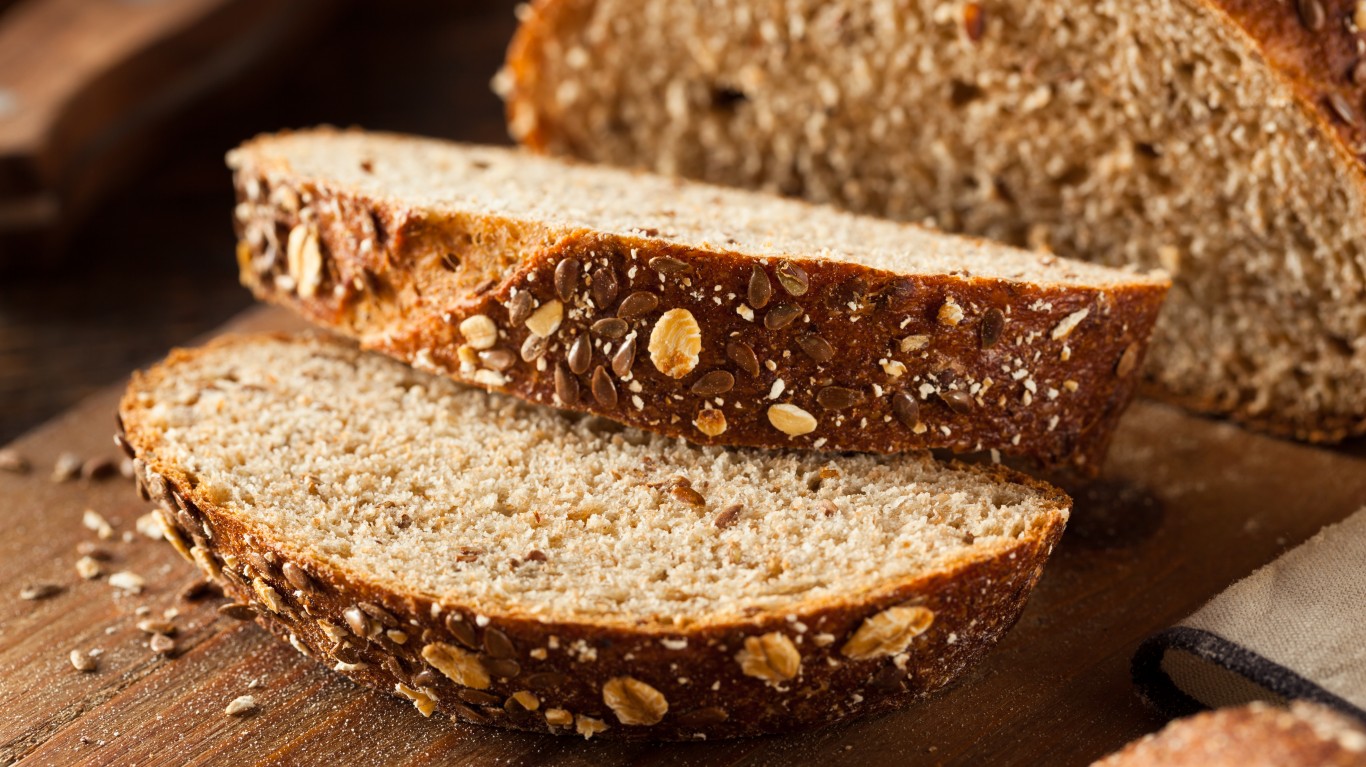
Bread
Bread should be kept in its original wrapper in a breadbox or in the fridge – although, it will stay fresh for longer at room temperature – and it should be consumed within a week. But it’s better protected from mold when refrigerated. If you freeze it, the bread will keep its quality for up to three months.
[in-text-ad-2]
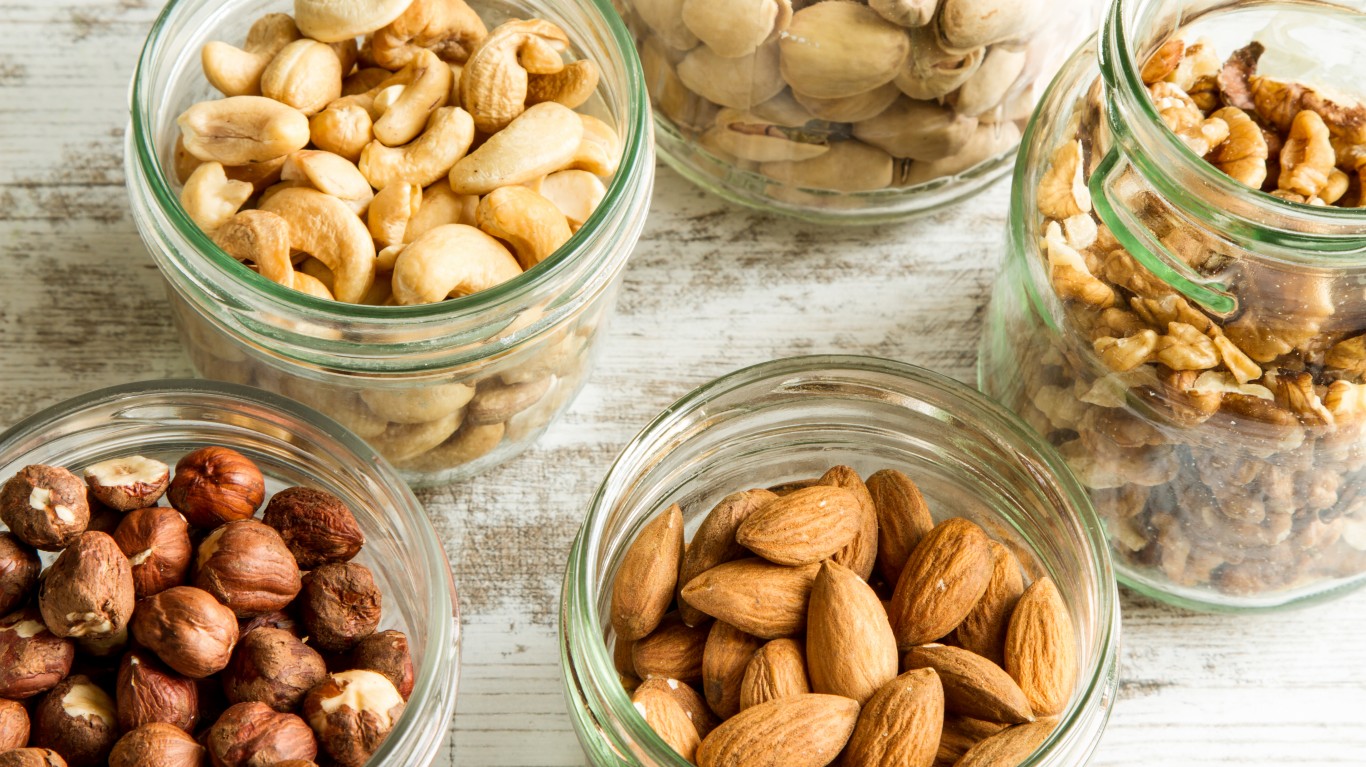
Nuts
How you should store nuts depends on how soon you’re going to eat them. Keeping small quantities at room temperature is fine. For long term use, however, store them in the freezer because the high fat content may become stale. For best quality, you should keep them in a moisture-proof container.
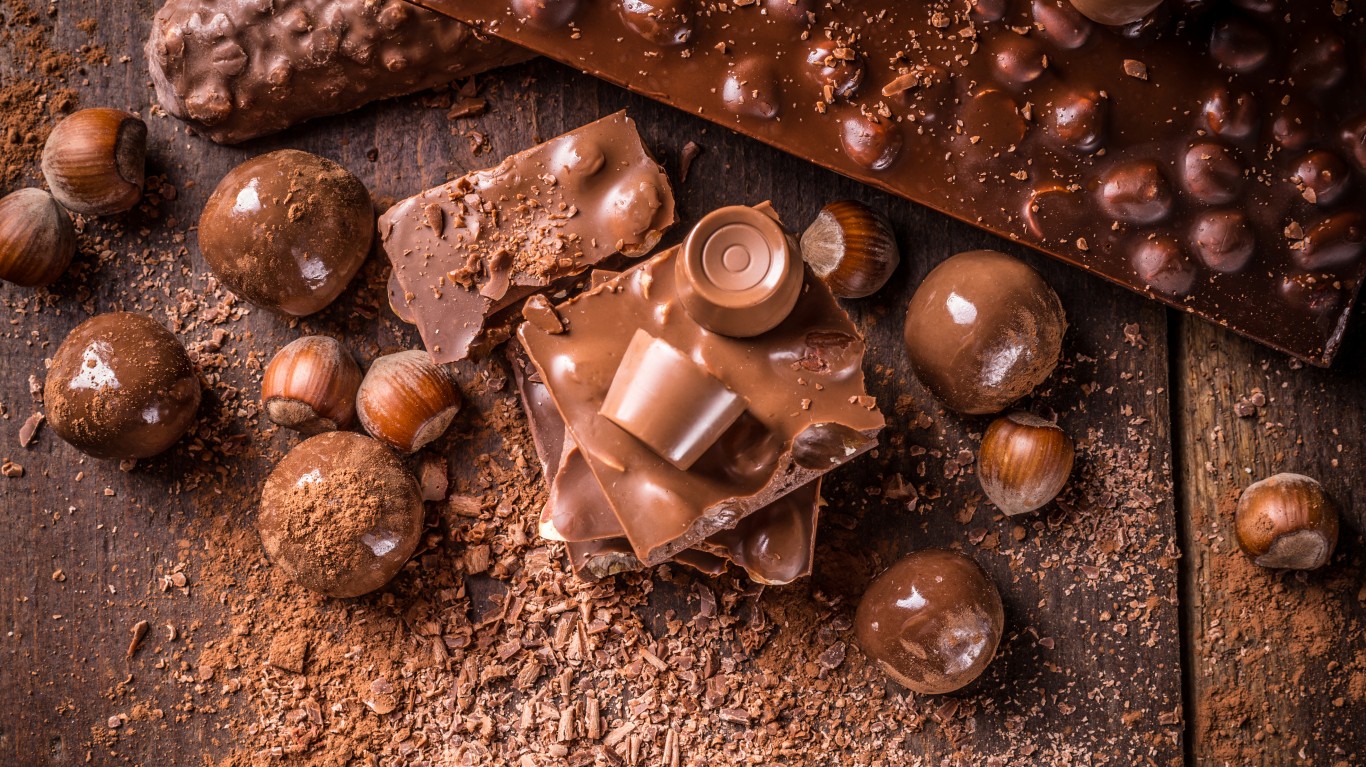
Chocolate
It’s a bad idea to keep chocolate in the fridge or freezer because it may pick up other flavors. Store it at room temperature for maximum flavor. Quick changes in humidity or temperature may cause the surface to become discolored. The best way to store chocolate is to keep it wrapped tightly in plastic in a cool and dry place.
[in-text-ad]
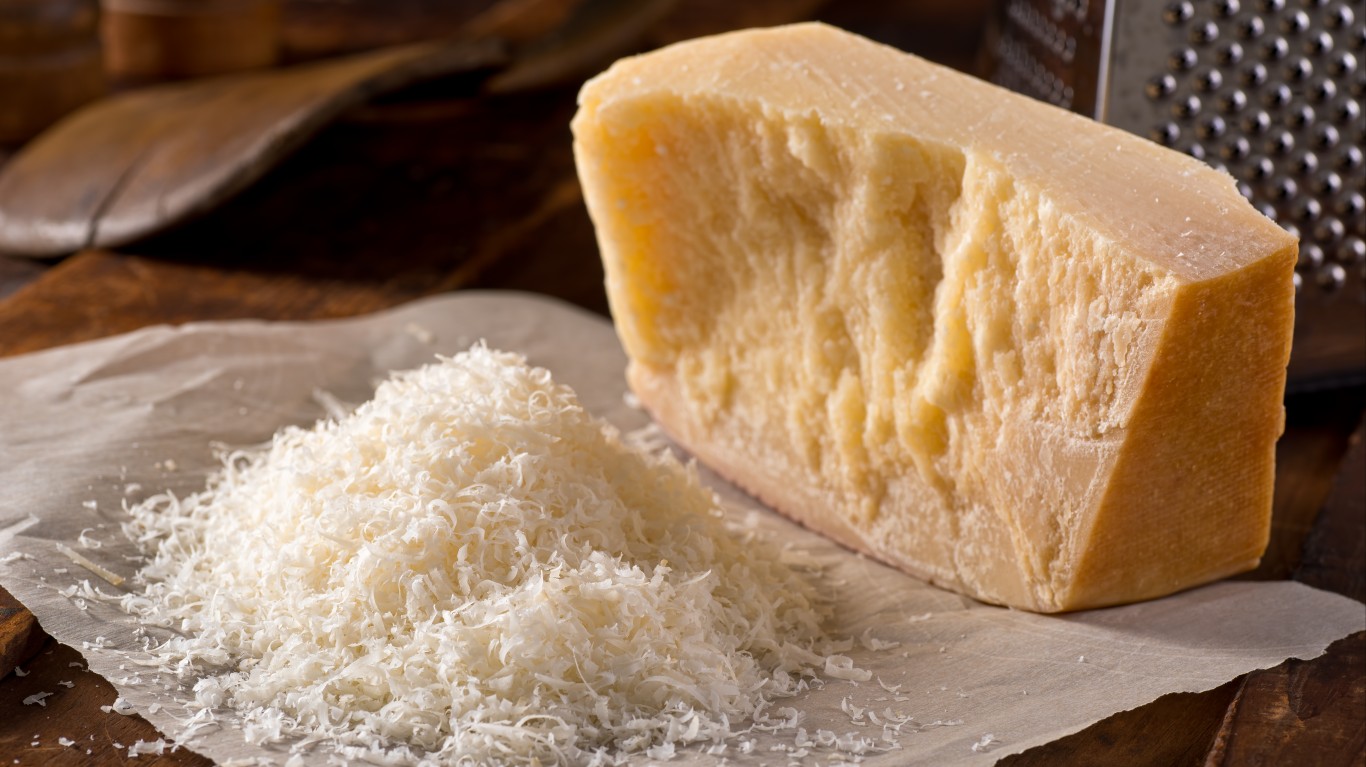
Parmesan cheese
Parmesan cheese can last for a long time if stored properly, due to its low water content and texture. The cheese should be kept in the fridge (never freezer) in a glass or plastic container to maintain the flavor. Otherwise, it may dry out and absorb the smell of other foods in the fridge.

Soft cheeses
Not only should soft cheeses such as Roquefort, Brie, Camembert, cottage, cream, ricotta, mozzarella, and Muenster be kept in the fridge, they should be discarded if left out at room temperature of 40 degrees Fahrenheit or above for more than two hours.
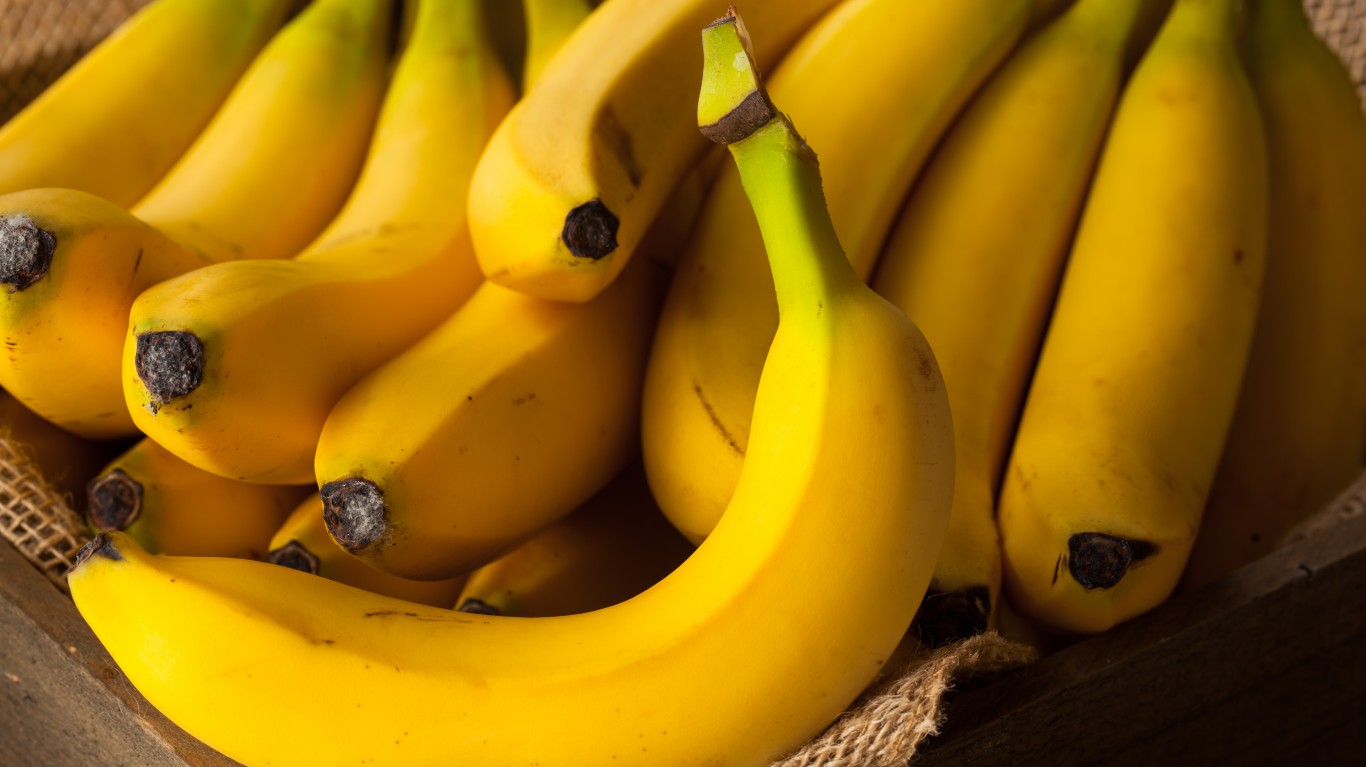
Bananas
Bananas should be left to ripen at room temperature. After that, it’s OK to keep them in the fridge. The skin will darken but this won’t affect the freshness or flavor of the fruit — as long as you eat them within five days.
[in-text-ad-2]
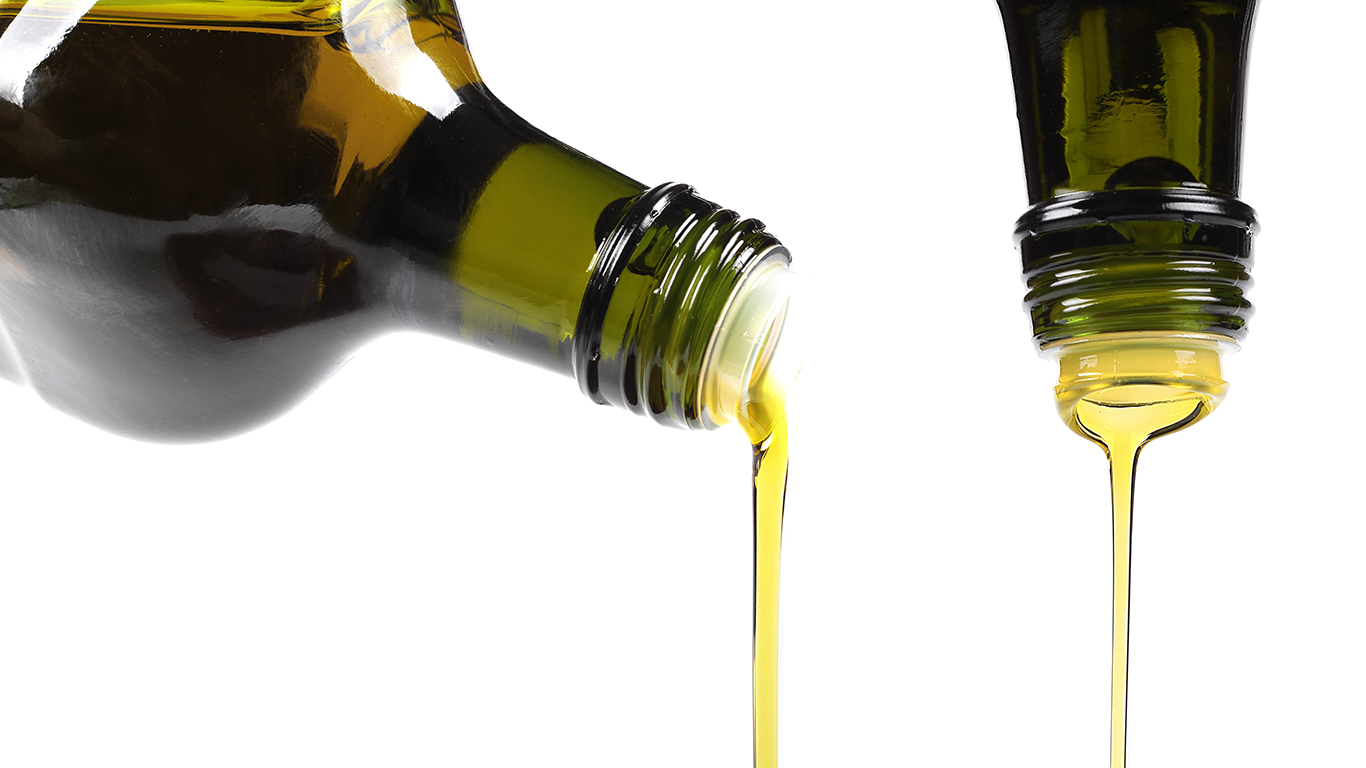
Olive oil
Olive oil should be kept in a cool, dry and dark place — never close to the stove as the heat will quickly lead to rancidity. Clear glass bottles should even be wrapped in foil to protect from light and heat so the oil will last longer. Once the bottle is opened, the olive oil is good for three months.
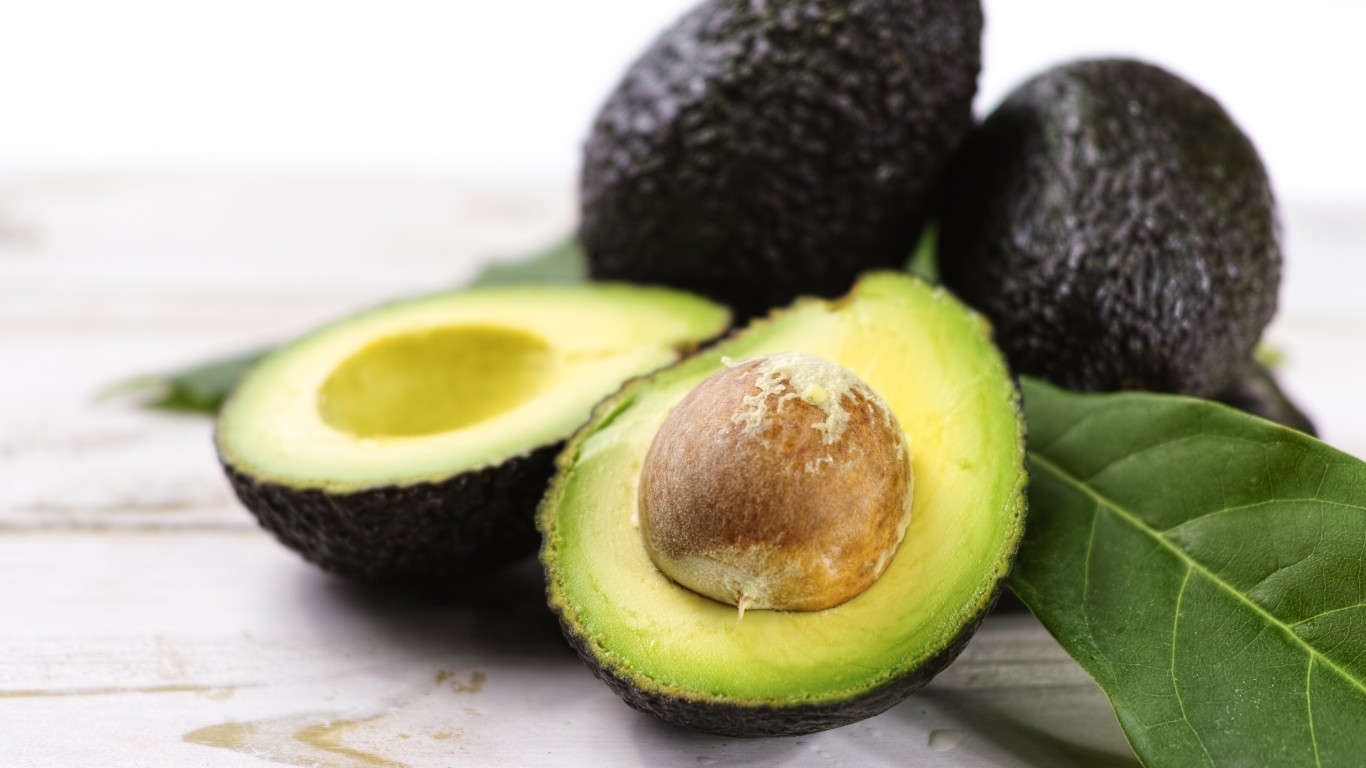
Avocados
If the avocados are not yet ripe, you should keep them in a paper bag at room temperature. After that you can store them in the fridge for up to three days. At the supermarket, you should look for avocados that yield when gently pressed, with firm skin and no soft spots.
[in-text-ad]
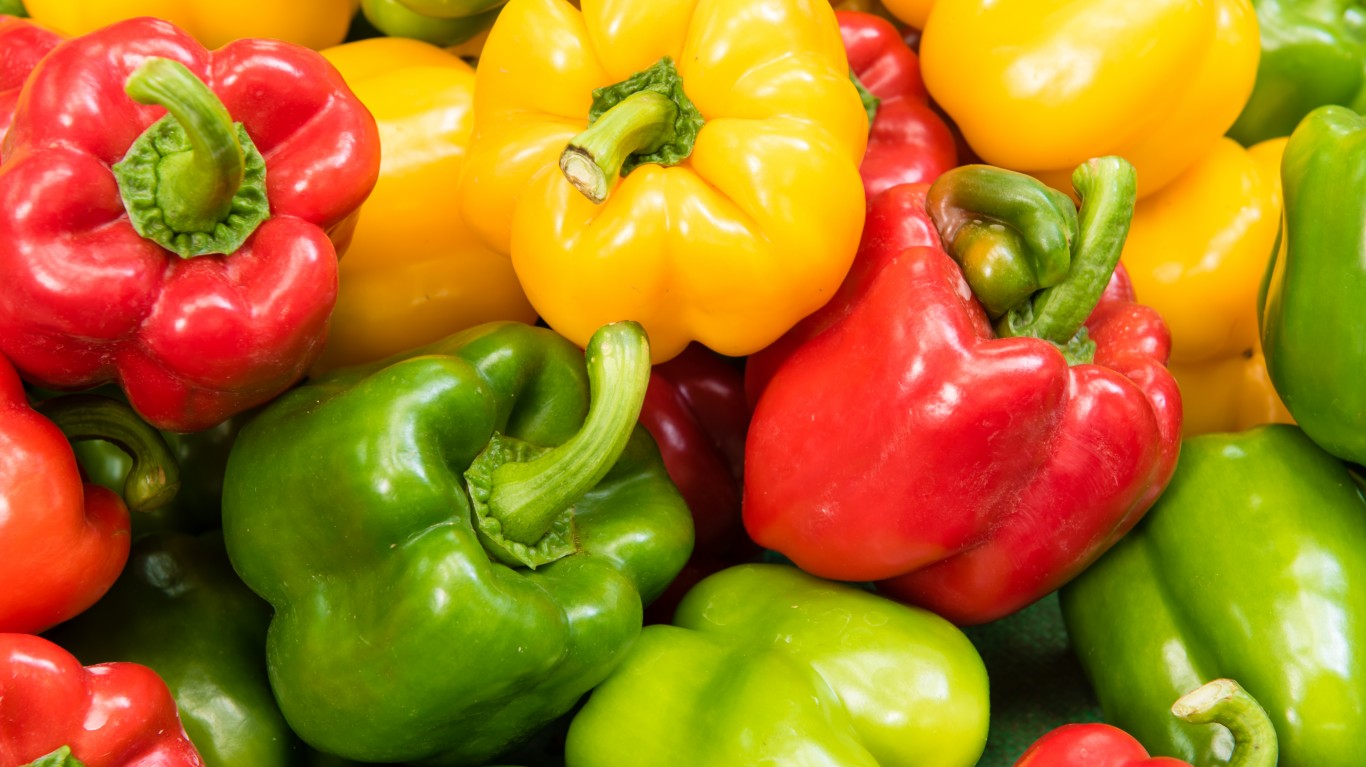
Bell peppers
Bell peppers should be stored in a plastic bag in the fridge and used within five days. They should be dry before put in storage. For food safety purposes, they should also be kept separate from raw meats and fish, as well as tools that have been used to cut these foods.

Berries
Berries need to be handled with care. Store them in the fridge in a shallow container to allow air circulation and to prevent the bottom ones from getting crushed. Don’t wash them beforehand. Put them in a moist area in the fridge, such as the vegetable keeper, in order to extend the shelf life. Blueberries are OK in these conditions for up to five days; blueberries and raspberries are good up to two days.
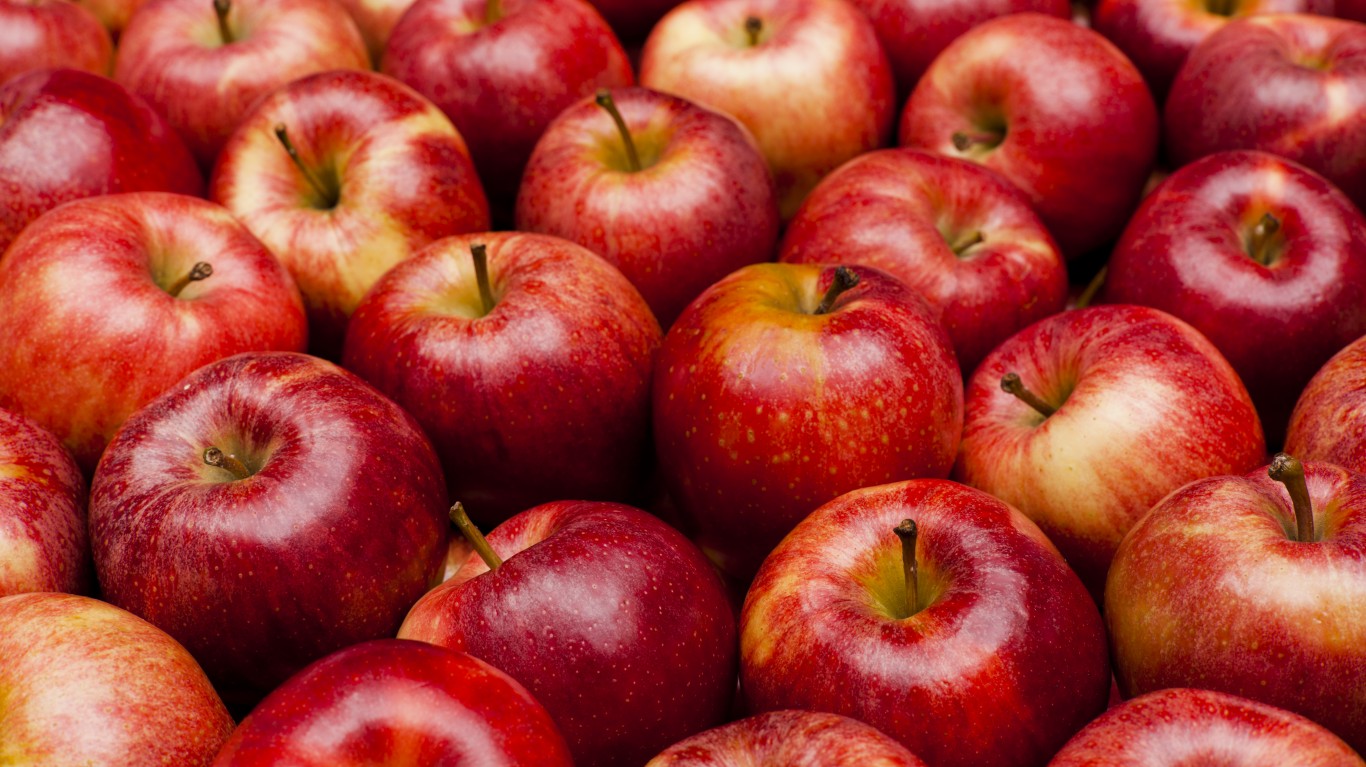
Apples
Apples should be refrigerated in a plastic bag, kept away from other produce with strong smells, and used within three weeks. Apples that are not going to be sold in fresh markets are stored at low temperatures with little oxygen to slow aging and prevent rotting, but fungicides must then be applied to stop fungal rots.
[in-text-ad-2]

Oranges
As is the case with all fresh fruits and vegetables, oranges should be stored away from raw meats. Oranges will last up to eight weeks if kept in the crisper drawer of the fridge with a temperature between 38 and 48 degrees Fahrenheit and humidity between 90% and 95%.
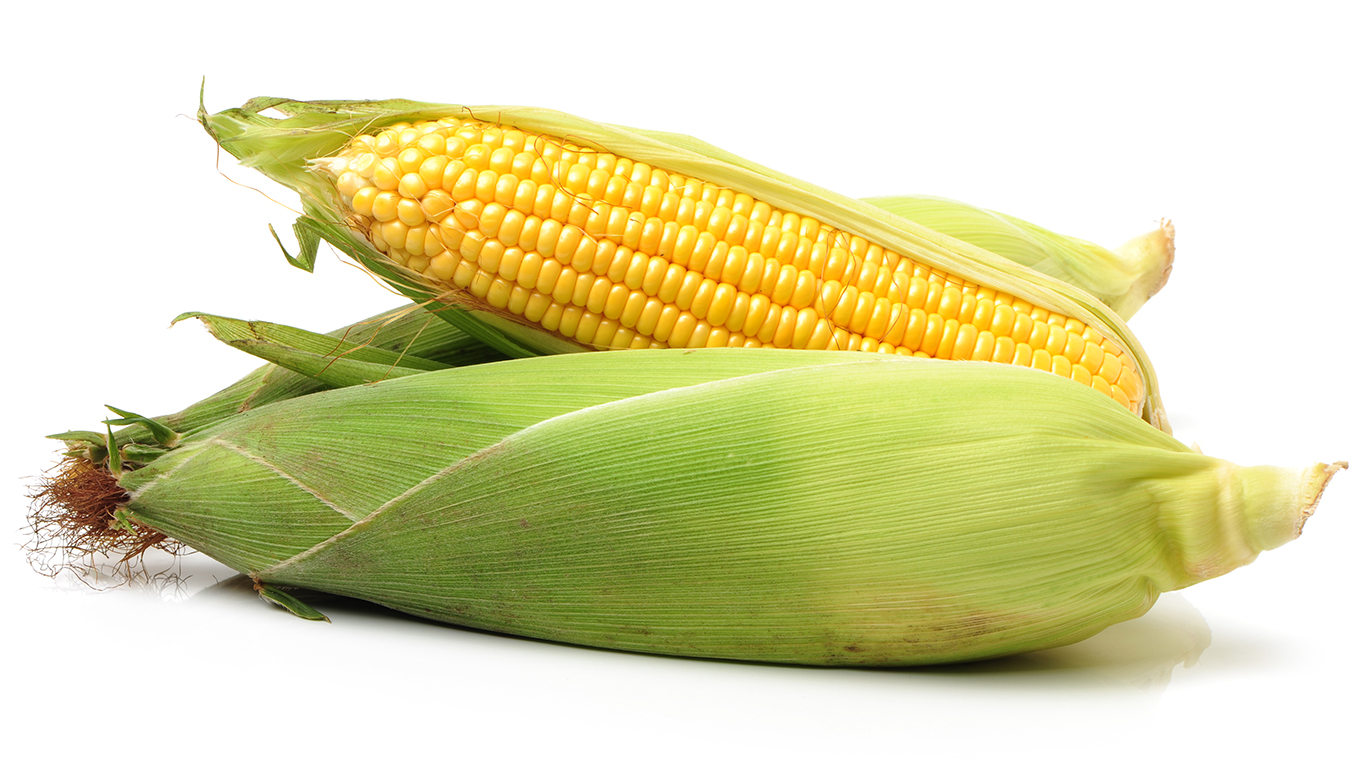
Corn
Corn keeps well frozen, which is why so many people store it that way. You can freeze it on the cob, whole kernel or cream style. Whatever method you choose, you should blanch the corn (scalding in boiling water or steam for a short time) beforehand. Then, cool, drain, seal and freeze.
[in-text-ad]
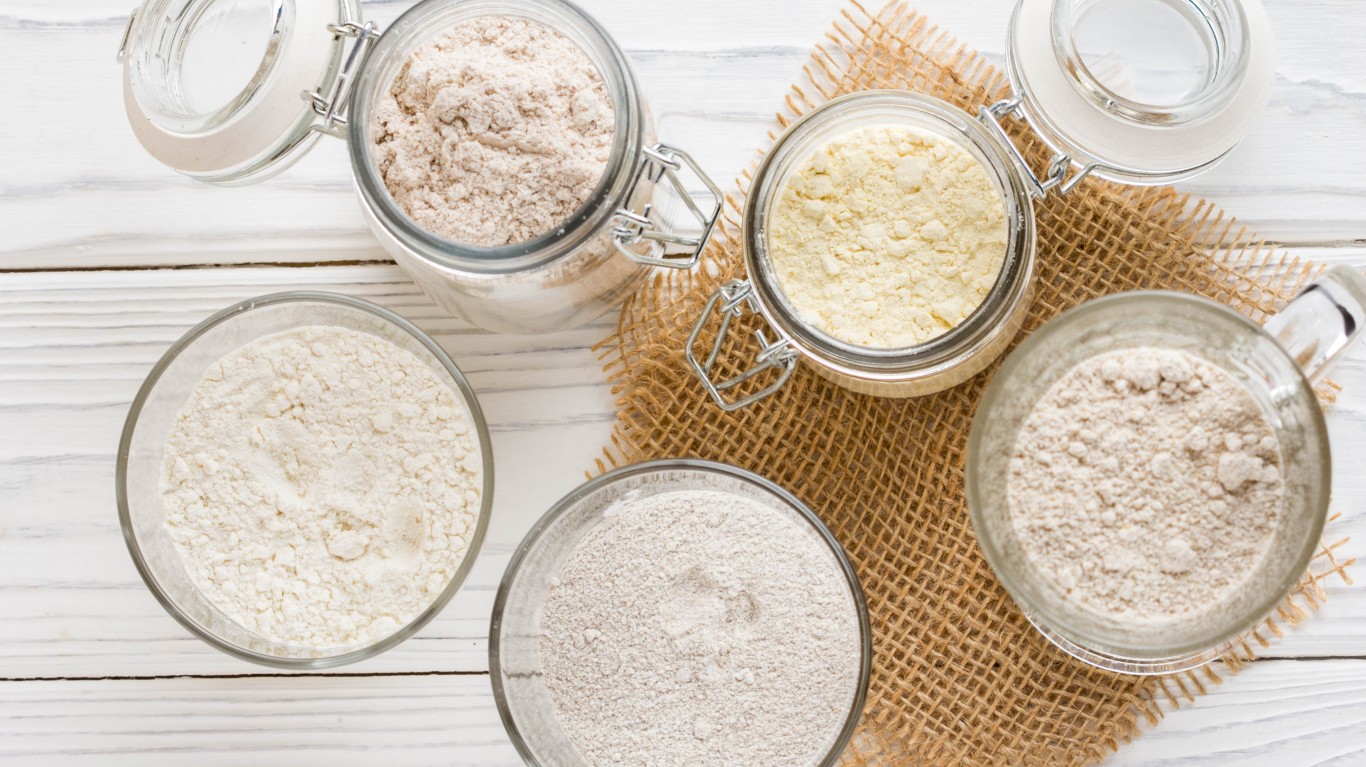
Whole wheat flour
Most whole grain flour has a shelf life of two to three months if kept refrigerated in an air-tight non-metal container, and up to eight months if frozen. Unopened packages should be kept in a cool and dry place. Seal tightly after opening.
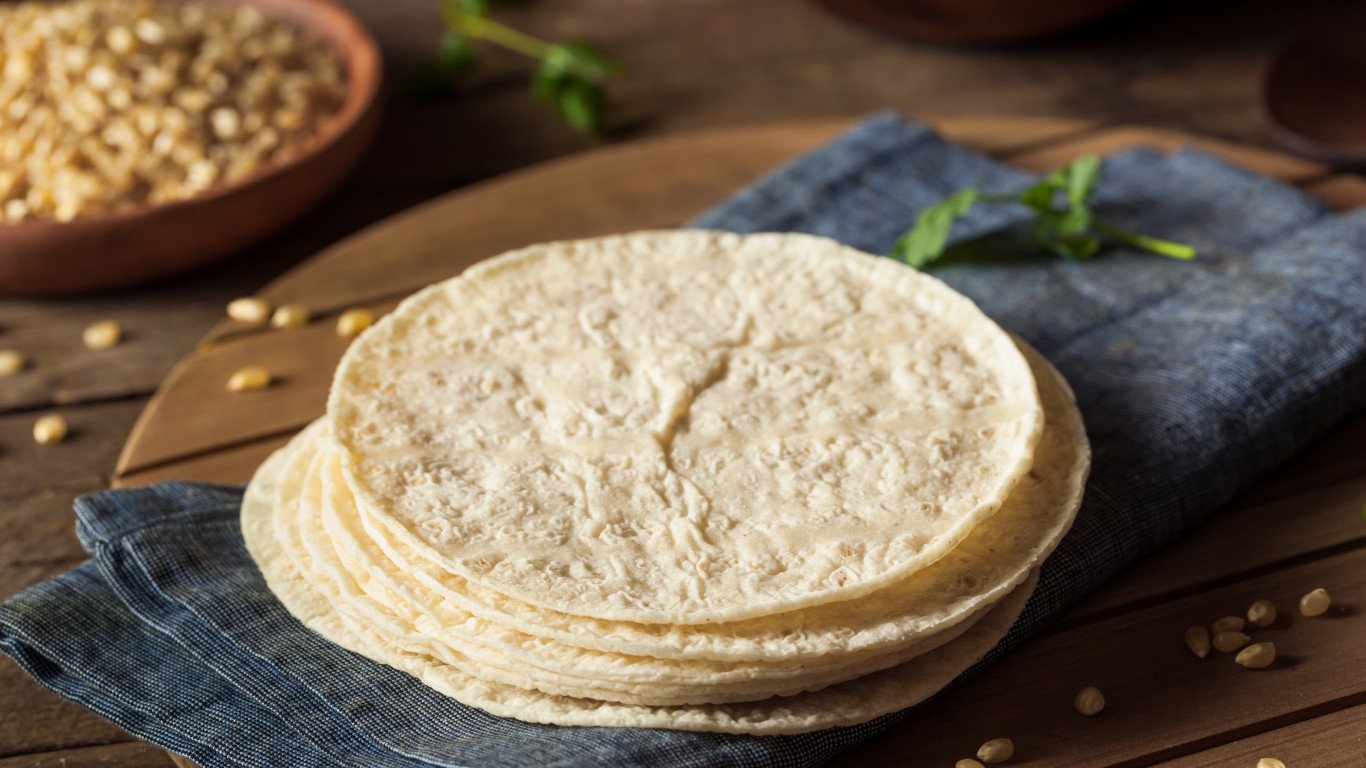
Tortillas
Whole grain tortillas should be stored frozen at 0 degrees Fahrenheit or lower. Fresh tortillas should be placed in a cooler within six hours after baking at a maximum temperature of 45 degrees Fahrenheit or a freezer. If frozen, they should be delivered no more than 90 days after baking.

Opened wine
You may have heard that red wine, for example, should not be served cold, but there is no reason to keep it in the pantry after opening. Refrigerating wine will help preserve its freshness significantly because it slows the natural breaking down process. The colder temperature slows bacterial growth. In fact, cooking wine dates back to at least the 16th century.
[in-text-ad-2]
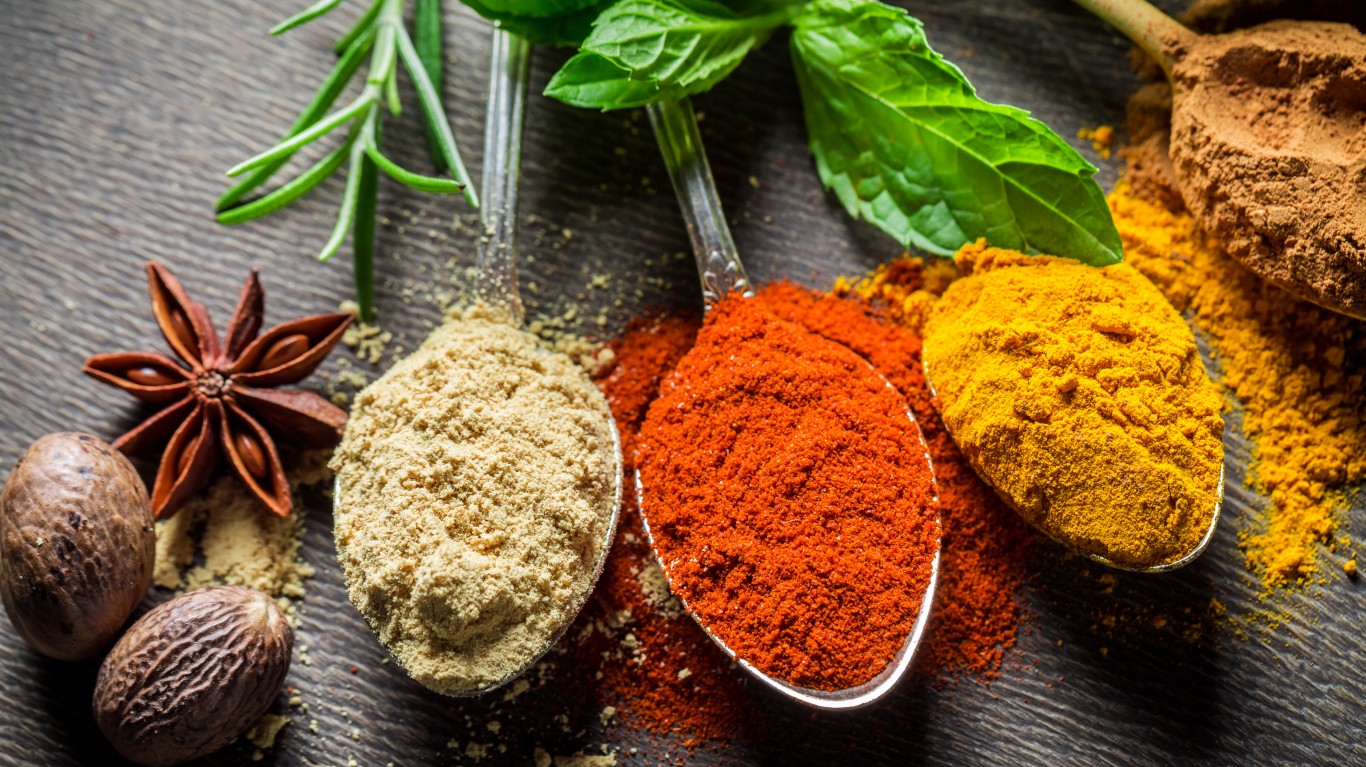
Spices
The shelf life of whole spices is about two years; ground spices and herbs, on the other hand, are good for about a year. Don’t make the mistake of keeping them on the counter or close to the stove as heat and sunlight will only destroy them faster. Keep the spices in airtight containers in dry places.
Take Charge of Your Retirement In Just A Few Minutes (Sponsor)
Retirement planning doesn’t have to feel overwhelming. The key is finding expert guidance—and SmartAsset’s simple quiz makes it easier than ever for you to connect with a vetted financial advisor.
Here’s how it works:
- Answer a Few Simple Questions. Tell us a bit about your goals and preferences—it only takes a few minutes!
- Get Matched with Vetted Advisors Our smart tool matches you with up to three pre-screened, vetted advisors who serve your area and are held to a fiduciary standard to act in your best interests. Click here to begin
- Choose Your Fit Review their profiles, schedule an introductory call (or meet in person), and select the advisor who feel is right for you.
Why wait? Start building the retirement you’ve always dreamed of. Click here to get started today!
Thank you for reading! Have some feedback for us?
Contact the 24/7 Wall St. editorial team.
 24/7 Wall St.
24/7 Wall St. 24/7 Wall St.
24/7 Wall St. 24/7 Wall St.
24/7 Wall St.